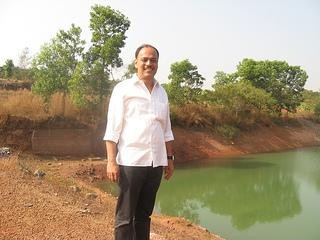Wastewater Reuse and Recycling
Conference report: The Anil Agarwal Dialogue on "Excreta does matter", organised by Centre for Science and Environment on 4-5 March 2013 at New Delhi
Posted on 12 Mar, 2013 03:23 PMA close examination of these two issues shows that the water and sewage challenge is already grave and could get worse. With this as the backdrop, Centre for Science and Environment (CSE), a public interest research and advocacy organisation based in New Delhi, organised a two day conference called the Anil Agarwal Dialogue on “Excreta does matter”. The conference took place at the Jacaranda Hall, India Habitat Centre, Lodhi Road, New Delhi on 4 and 5 March 2013.
The dialogue aimed at furthering the agenda of CSE’s seventh State of India’s Environment report titled Excreta Matters. This report is a comprehensive survey of the situation of water and wastewater management in 71 Indian cities. The study found that most cities lack a basic policy direction on how best to tackle issues of demand, supply and treatment of water, and of management of sewage.
The Dialogue being the first of its kind brought together a wide range of professionals, activists, practitioners, policy makers, academicians, researchers and administrators from the water sector. The event was aimed at drawing attention on the critical issues of how cities will get affordable and sustainable water and waste systems that can supply to all and take back and treat the sewage of all.

Reviving a lake transforms 120 acres of barren land into a self-sufficient organic farm: The story of Rajesh Naik and Oddoor farms, Mangalore, Karnataka
Posted on 05 Mar, 2013 03:39 PMA visit to Oddoor farms near Mangalore, Karnataka, provides an inspiring example of the efforts made by Rajesh Naik ji to transform 120 acres of barren land into a lush green farm through his persistent efforts of creating a two acre and fifty feet deep lake, which has not only transformed the surrounding area, but has also helped in improving the water table in the surrounding village, besides helping in the development of a self sufficient organic farm and a dairy.
Oddoor farms, around 25 kilometres away from Mangalore city is a great example of a very successful effort made by Rajesh Naik ji who has transformed 120 acres of barren land into a self sufficient organic farm by developing a 50 feet lake on two acres of land. The journey has been a long one and not without its share of challenges, but persistence and constant optimism and hard work to overcome challenges has reaped results in the last twenty years, informs Rajesh Naik ji.

Rajesh Naik ji near the lake he has developed at the Oddoor farms near Mangalore
Strategies for achieving environmental sustainability in rural development - A report by United Nations Development Programme
Posted on 23 Feb, 2013 10:22 AMThis report by the United Nations Development Programme (UNDP) presents strategies for inclusive rural development embodying the principles of environmental sustainability. It recommends measures needed to achieve green, including measuring and tracking, the use incentives and the building of capacities. It also contains a number of case studies showing how green results can be achieved.
Guidelines for decentralized wastewater management by Ministry of Urban Development (2012)
Posted on 12 Feb, 2013 07:36 PMThis guideline is prepared by the Centre of Excellence in the area of Decentralized Wastewater Management, in the Department of Civil Engineering at Indian Institute of Technology, Madras, which comes under Ministry of Urban Development
Wastewater management: A case study of Tiruchirapalli city in Tamil Nadu
Posted on 28 Jan, 2013 11:43 AMAny form of liquid waste discharged by domestic residents, industries, agriculture and commercial establishments into water is called a wastewater. This water contains different quantities of contaminants which pollutes water and makes it unfit for any productive or domestic use. Set against the backdrop of dire need for effective and efficient management of wastewater, this paper is a case study of Tiruchirapalli city in Tamil Nadu. The analysis provided in the paper is an outcome of the field work carried out in the city, which emphasises for developing a strategy for the management of wastewater.
Water: Towards a paradigm shift in the Twelfth Plan - A paper by Mihir Shah in the EPW
Posted on 22 Jan, 2013 10:37 AMA fundamental change in the principles, approach and strategies of water management in India has been proposed in the Twelfth Plan
Why is this paradigm shift needed ?
Everything about water expo - International exhibition & conference on water & wastewater management, EA Water, Chennai Trade Centre, Nandambakkam, Chennai, February 28 to March 2, 2013
Posted on 09 Jan, 2013 10:04 AM EverythingAboutWater EXPO is South Asia's largest exhibition and conference coverin
EverythingAboutWater EXPO is South Asia's largest exhibition and conference coverin
Is your neighbourhood a 'dirty picture' ?: The growing garbage crisis and 10 ways in which you can help
Posted on 06 Jan, 2013 02:13 PM‘A potato peel, a piece of paper and a plastic packet’: The story of garbage
Let’s begin with a story of the journey of our junk, in a typical Indian city.




